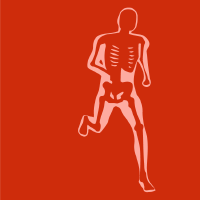Topic Editors

Movement and Health: Holistic Development to Support Long-Term Active Lifestyles
Topic Information
Dear Colleagues,
The scientific literature frequently emphasizes the urgent need to address the gradual decline in motor competence and health-related fitness levels during childhood and adolescence, often associated with low physical activity levels. To challenge this situation, national/international guidelines (e.g., WHO Guidelines on Physical Activity) underline the need to improve the amount of physical activity during childhood and adolescence. However, solely increasing the quantity of physical activity may not be the best solution. Therefore, effective educational strategies to foster holistic learning and development in multiple domains to support long-term active lifestyles are also essential. It is well known, however, that for any intervention to be effective, it must be supported by appropriate evaluation processes.
This Topic aims to gather studies that could help to supplement the existing literature in the fields of motor development and physical fitness, and their relation with the psychological, social–emotional, and cognitive behaviour of individuals.
Specifically, studies that examine the impact of interventions to support holistic development processes in children and adolescents require assessment. However, holistic assessment practices are limited. Furthermore, the assessment of physical education in many countries around the world is lacking due to multiple factors, including assessment time feasibility, cost, and necessary assessment training. Thus, research on the methods of assessing holistic development, the barriers and facilitators of assessments, and systematic literature reviews are accepted. The keywords associated with this call will be useful for contextualizing the focus of this Topic.
Dr. Francesco Sgrò
Prof. Dr. David Stodden
Topic Editors
Keywords
- physical fitness
- motor competence
- physical education
- physical literacy
- holistic development
- assessment
- cognitive
- psychological
- social–emotional
Participating Journals
| Journal Name | Impact Factor | CiteScore | Launched Year | First Decision (median) | APC | |
|---|---|---|---|---|---|---|

Applied Sciences
|
2.5 | 5.3 | 2011 | 18.4 Days | CHF 2400 | Submit |

Journal of Functional Morphology and Kinesiology
|
2.6 | 4.2 | 2016 | 19.7 Days | CHF 1600 | Submit |

Sports
|
2.2 | 4.1 | 2013 | 19.1 Days | CHF 1800 | Submit |

Children
|
2.0 | 2.7 | 2014 | 14 Days | CHF 2400 | Submit |

MDPI Topics is cooperating with Preprints.org and has built a direct connection between MDPI journals and Preprints.org. Authors are encouraged to enjoy the benefits by posting a preprint at Preprints.org prior to publication:
- Immediately share your ideas ahead of publication and establish your research priority;
- Protect your idea from being stolen with this time-stamped preprint article;
- Enhance the exposure and impact of your research;
- Receive feedback from your peers in advance;
- Have it indexed in Web of Science (Preprint Citation Index), Google Scholar, Crossref, SHARE, PrePubMed, Scilit and Europe PMC.

